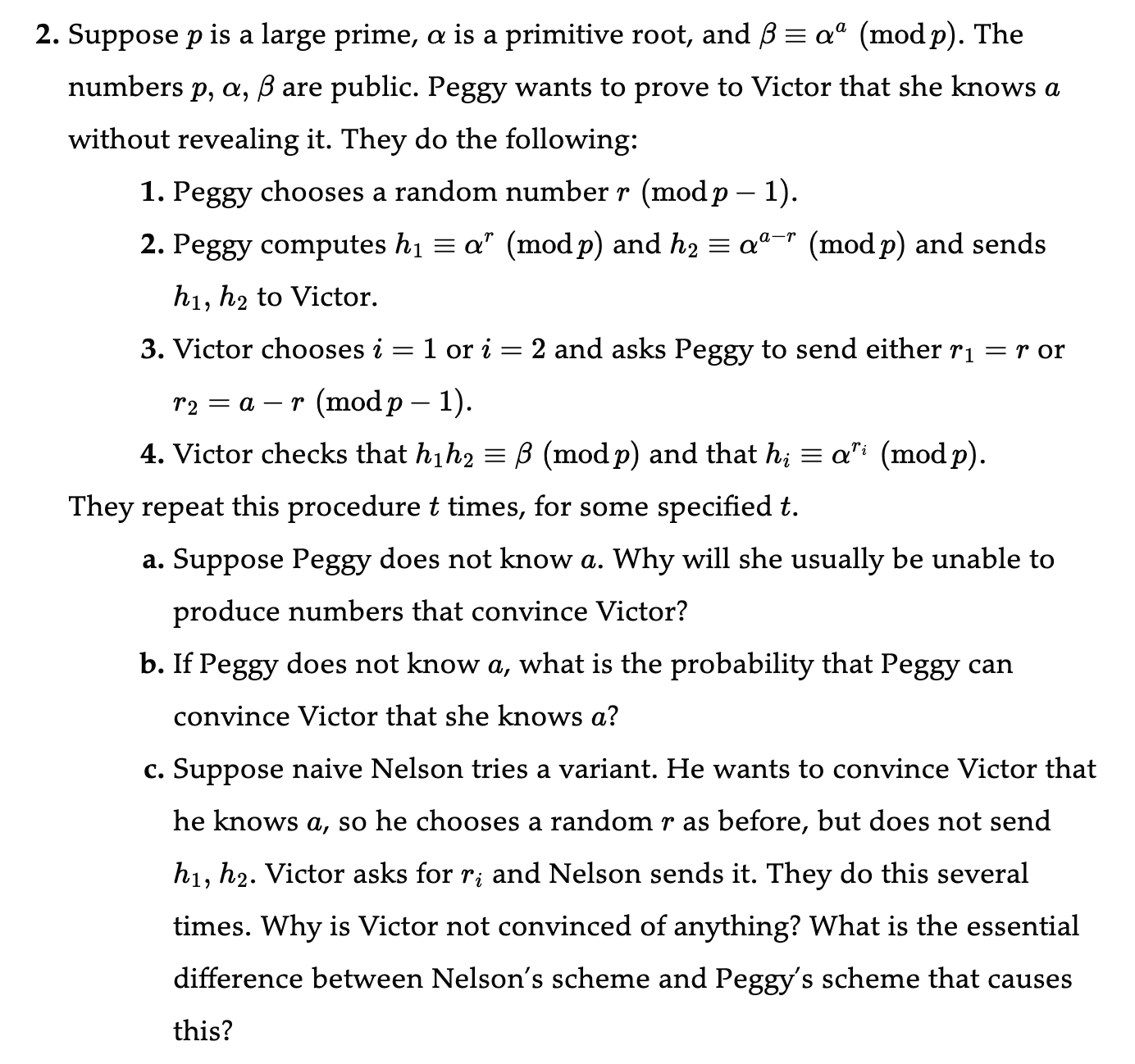Answered step by step
Verified Expert Solution
Question
1 Approved Answer
2. Suppose p is a large prime, a is a primitive root, and = a (mod p). The numbers p, a, are public. Peggy

2. Suppose p is a large prime, a is a primitive root, and = a (mod p). The numbers p, a, are public. Peggy wants to prove to Victor that she knows a without revealing it. They do the following: 1. Peggy chooses a random number r (mod p 1). a-r 2. Peggy computes h = a (mod p) and h = a (mod p) and sends h1, h2 to Victor. 3. Victor chooses i = 1 or i = 2 and asks Peggy to send either r = r or r2=ar (mod p 1). 4. Victor checks that hh2 = (mod p) and that h = a'i (mod p). They repeat this procedure t times, for some specified t. a. Suppose Peggy does not know a. Why will she usually be unable to produce numbers that convince Victor? b. If Peggy does not know a, what is the probability that Peggy can convince Victor that she knows a? c. Suppose naive Nelson tries a variant. He wants to convince Victor that he knows a, so he chooses a random r as before, but does not send h1, h2. Victor asks for r; and Nelson sends it. They do this several times. Why is Victor not convinced of anything? What is the essential difference between Nelson's scheme and Peggy's scheme that causes this?
Step by Step Solution
There are 3 Steps involved in it
Step: 1

Get Instant Access to Expert-Tailored Solutions
See step-by-step solutions with expert insights and AI powered tools for academic success
Step: 2

Step: 3

Ace Your Homework with AI
Get the answers you need in no time with our AI-driven, step-by-step assistance
Get Started


